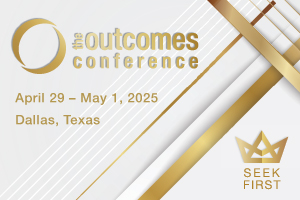
The Second Shove Brings Trouble By Alec Hill

When Overreating Gets Us In Trouble
I knew trouble growing up. As a youngster, I played lots of basketball. On occasion, I found myself being covered by a player who pushed, elbowed, and shoved me around. It would take a while before my frustration boiled over, and I retaliated.
And guess who got called for a foul? Me, of course. My antagonist was generally too sly to get caught by the referee, and I was stupid enough to fall into the same trap repeatedly.
Sadly, such behavior often occurs in the workplace. How do we react when a supervisor, peer, or subordinate undercuts or derides us? Do we take the bait and respond in kind? Or do we take a higher road?
Unhealthy Responses
Overreacting to a coworker’s aggression is a lousy option. Not only do we lower ourselves to their level, but we also risk losing the esteem of valued colleagues observing the fracas.
A second—and perhaps more common—strategy is avoidance. When someone demeans or bullies us, we step aside. To stay out of their line of fire, we give them a wide berth. While this may work in some cases—such as transferring to a new team—it generally just kicks the can down the road. The lousy actor may find another victim or come back to us later. It’s not a great solution.
A third and related variant is what I call “Christian Nice.” Ned Flanders of The Simpsons typifies this approach. He has responded to abrasive personalities for years by repressing his anger, not making waves, and smiling back. Everyone thinks he’s a saint. But in an episode entitled Hurricane Neddy, he explodes. And it’s not a pretty sight.
The problem with being docile in the face of unfair treatment is that our frustration builds and boils. It can also go underground and express itself in the form of passive-aggressive behavior. Though appearing calm, our resentfulness may be expressed through non-cooperation, procrastination, and intentional inefficiency.
Appropriate Responses
Scripture is replete with conflict. For the sake of brevity, I will focus on Matthew 18 as a path forward. While the text addresses Christians, I believe Jesus’ principles have broader application. Here are four.
ONE: Turn the Other Cheek, Initially
When someone hurts us, our first reaction should be one of patience. Giving others the benefit of the doubt, we breathe deeply and hope that the action or comment was inadvertent. In doing so, we absorb a measure of pain.
TWO: Confront Misbehavior Quickly, Fairly, and with Composure
When we conclude that the bad conduct is intentional, we should initiate an honest conversation. Allowing an incident to fester is unwise and often results in escalation.
Most times, directness and humility will resolve the matter. Sometimes, we may see the other person’s perspective and realize we’ve contributed to the conflict. Often, an apology or step-back results. The apostle Paul was a master confronter, whether of his Roman captors (Acts 16:37) or his peer Peter (Gal. 2:11).
THREE: Include Others
If a one-on-one confrontation fails to resolve matters, Jesus says to broaden the conversation. Bring in one or two others who are either highly respected or have positional authority. This may include a trusted peer, a supervisor, or the HR director.
Hopefully, the neutrals will be able to listen carefully and mediate a resolution. If not, they may need to make a judgment and hold the antagonist accountable.
FOUR: Cheek-Turning Redux
What about the relatively few situations that remain unresolved? How will we respond to those who continue to be hostile toward us?
Jesus provides a harsh reply. In Luke 6, he tells us to “love, do good, bless, and pray” for those who “hate, curse, and mistreat us.” In other words, we are to be aggressively kind to those who are unkind to us, deliberately good to those who mistreat us and love those who hate us consciously.
I can think of no greater spiritual challenge. In one situation, over eight years, I prayed every Friday for someone who harbored animus towards me. It was hard to ask the Lord to bless him, but my soul was eventually cleansed. My ill feelings were released.
In sum, let us neither retaliate nor practice avoidance when unfairly attacked. Instead, we should garner the courage to initiate difficult conversations firmly and graciously. And, if need be, we should be faithfully positive towards those who wish us ill.
####
Alec Hill is President Emeritus of InterVarsity Christian Fellowship USA.

Join us for the Outcomes Conference Global Digital Experience – September 1 – October 31, 2024.
Engage with worldwide Christian nonprofit professionals in a learning community that will increase your competencies and expand your leadership capacity. We are coming together to become together!
Registration and Scholarships are available through August 26, 2024!
Bring a new level of operational excellence to your payroll practices. Learn How!

What is Christian Leadership Alliance?
Christian Leadership Alliance equips and unites leaders to transform the world for Christ. We are the leaders of Christ-centered organizations who are dedicated to faithful stewardship for greater kingdom impact.




